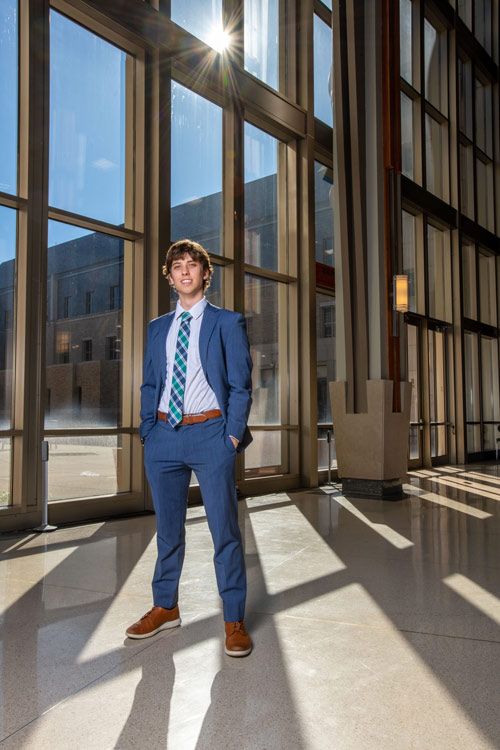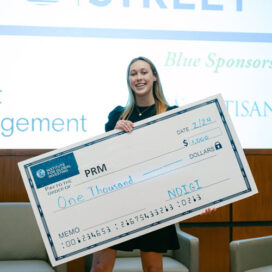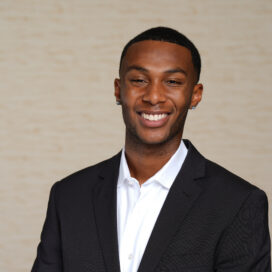Redefining “Best”
Joshua Haskell, Accountancy major, shares how the Business Honors Program showed him the true purpose of business
Published: July 14, 2023 / Author: Brandi Wampler

Josh Haskell
Joshua Haskell’s (BBA ‘24) first conversation with the Business Honors Program (BHP) was a request to withdraw his application.
“I was nervous about the time commitment,” Haskell shared.
In response, BHP Faculty Director Jim Otteson invited Haskell to meet with him one on one. Haskell, skeptical, went.
“I knew Professor Otteson was someone that probably shouldn’t have time to do that — to meet for an hour and a half just to talk about me, my goals and how they fit in with the program. It was a testament that the BHP was going to be student-focused where professors and staff were really willing to dive in and invest in the students.”
Joining the BHP has changed his college experience. All of his best friends are in the program, and he appreciates that the community is made up of like-minded students who believe in using their business knowledge for the good of the world. Because he grew up in a small community, he enjoys having a close-knit group that he can bond with throughout the academic year.
What surprised him, though, given that his mother’s career involved working with Catholic business leaders, was that some of his Notre Dame classmates had negative perceptions about business.
“For me, the vision of a business leader is to make a difference in the world. So much good can be done from business. I had this really isolated perspective where business is a good thing, and I learned that’s not everyone else’s first experience.”
But that background gave him a unique view for his BHP classes, including Why Business? taught by Otteson. The course explores capitalism through a historical perspective, showing how different economic systems have evolved over time and how that’s resulted in innovation and the advancement of society.
One of the readings that really spoke to Haskell was an encyclical from Pope John Paul II Laborem Exercens, which was presented in 1981 as part of the larger body of Catholic social teaching. It discusses trends that would affect future generations such as the increased use of technology, the need to protect the environment and the growth of the global economy. But most notably, it emphasizes the dignity of work and the concept that “man is the subject of work,” not the object.
The concept emphasized that work is foremost for people and not toil, with the goal of finding the uplifting and fulfilling aspects of work. It was a moment that led to Haskell reframing his priorities in life and how he considers worth and success.
Altogether his classes, the BHP’s colloquia and other programming has made Haskell rethink his original desired career path, which was centered around prestige and the chase of success. Now, he wants to make sure his priorities stay aligned where God and others come first and embrace a career that is first for service. It means his future plans are, for now, undecided.
In the program’s inaugural year, Haskell received the BHP’s Spirit Award, which recognizes a student that most embodies the meaning of the program.
“It was a tough realization because I have this craving to be the ‘best,’ so I’ve had to redefine ‘best’ to not be like what everyone else thinks. I’ve redefined it to mean using my skills in a way that loves and serves others around me and society at large.”




